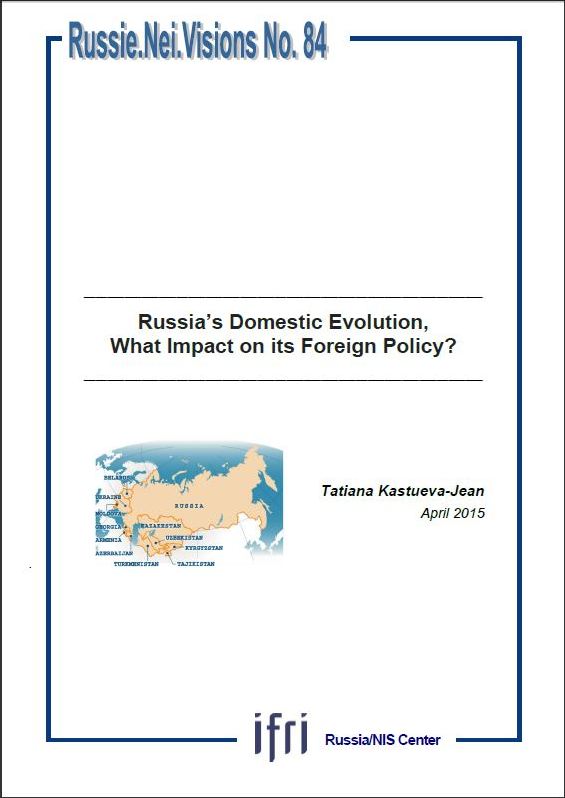Russia’s Domestic Evolution: What Impact on its Foreign Policy?

Throughout the Ukraine crisis, the West has been surprised at the brutality of Russia's reaction. It has also been surprised by the broad support for Vladimir Putin's policy among the country’s elites and the population at large (88% of whom back the policy), despite the impact of sanctions and countermeasures that are contributing to the deterioration of the country's economy. This level of support cannot be attributed solely to Russia's propaganda machine, though it has been exerting unprecedented influence since early 2014.
Russia is using its discourse on the West's behavior as a tool with which to justify the tightening of its foreign policy. While this is undoubtedly a factor, it conceals three profound changes in Russia and in the nature of its political regime that have led to a tougher policy: an extreme concentration of power at the highest level, a failure to diversify the economy and modernize post-Soviet Russia, and the destabilization of society.
Download the full analysis
This page contains only a summary of our work. If you would like to have access to all the information from our research on the subject, you can download the full version in PDF format.
Russia’s Domestic Evolution: What Impact on its Foreign Policy?
Related centers and programs
Discover our other research centers and programsFind out more
Discover all our analysesRussia's Asia Strategy: Bolstering the Eagle's Eastern Wing
Among Russia’s strategic priorities, Asia traditionally played a secondary role compared to the West. In the mid-1990s, then Foreign Minister Yevgeny Primakov initiated a rapprochement with China and India. Then, in 2014, deteriorating relations between Russia and the West prompted Moscow to begin its “great pivot to the East”.
Kazakhstan After the Double Shock of 2022: Political, Economic and Military Consequences
The year 2022 represented a dual shock for Kazakhstan. In January, the country faced its most severe political crisis since independence, followed in February by Russia’s full-scale invasion of Ukraine, which cast uncertainty over the borders of post-Soviet states. These consecutive crises profoundly shaped Kazakhstan’s domestic and foreign policy.
How the Russian Army Changed its Concept of War, 1993-2022
The traditional and high-intensity war that has occurred in Ukraine since Russia decided to invade raises a key issue: did post-soviet Russian strategic thought really prepare Russia for waging this war?
Russia's Nuclear Deterrence Put to the Test by the War in Ukraine
From the outset of its “special military operation” (SVO) against Ukraine on February 24, 2022, Russia, which possesses one of the world’s largest nuclear arsenals, has adopted aggressive deterrence measures and a resolutely menacing rhetorical stance.












